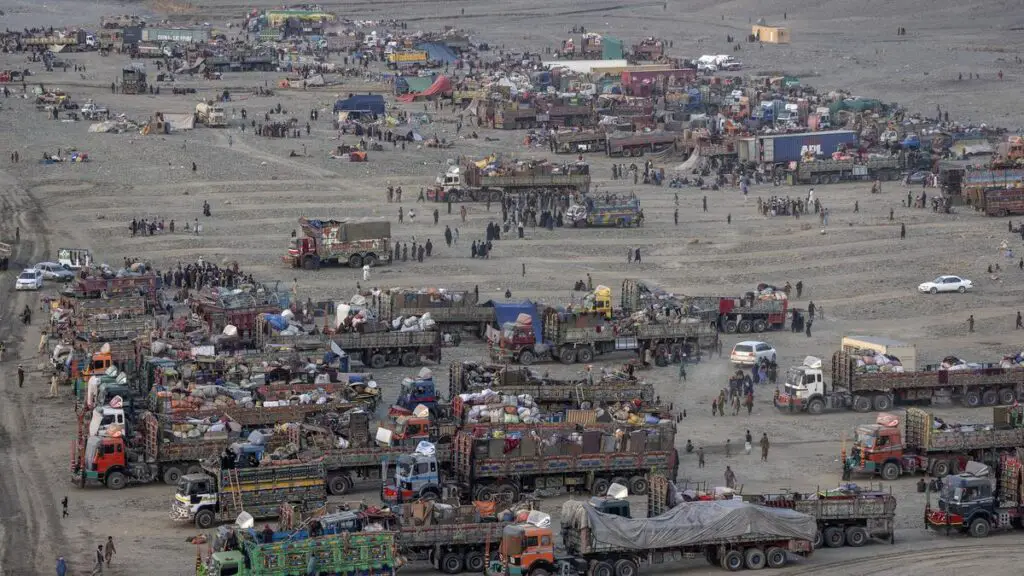Pakistan closed a key border crossing with Afghanistan, causing a standoff between the two countries. The Torkham border crossing is critical for trade and has faced repeated closures, impacting both Afghan and Pakistani truck drivers.
Border Crossing Standoff
According to Afghanistan’s ruling Taliban, Pakistan effectively closed the northwestern border crossing with Afghanistan to truck drivers. Noor Mohammad Hanif, director of Information and Culture department in Afghanistan’s eastern Nangarhar province, mentioned that officials at Torkham began asking for passports and visas from Afghan drivers, a departure from previous practices where truckers could pass the border without documents. In response, Afghanistan has started asking Pakistani drivers for passports and visas. Both sides are currently in talks to resolve the issue, with the Torkham border crossing having been closed several times in recent months.
Impact on Trade and Security Concerns
The closure has led to dozens of trucks carrying perishable items waiting on each side of the border. The crossing serves as a vital commercial artery and a trade route to Central Asian countries for Pakistan. Pakistan is concerned about the presence of the Pakistani Taliban in Afghanistan, alleging that the group has found sanctuary there and carried out attacks on Pakistani security forces. The Afghan Taliban government, however, denies permitting the Pakistani Taliban to use its soil for attacks in Pakistan.
Political Dynamics and Tensions
Recently, Fazlur Rehman, a senior Pakistani politician known for backing the Afghan Taliban, visited Kabul in an effort to ease tensions between the two countries. His visit came after the Taliban seized power in Afghanistan in 2021, causing a shift in the political dynamics of the region. Tensions also exist around Pakistan’s expulsion of Afghan refugees, with more than half a million deported in recent months. This move has sparked concerns about the humanitarian situation for Afghan refugees in Pakistan.
Historical Context
Pakistan has a long history of hosting Afghan refugees, with most fleeing during the Soviet occupation in the 1980s and later when the Taliban seized power. The ongoing expulsion of Afghans has raised questions about the treatment of refugees and the impact on regional stability. Both Pakistan and Afghanistan are navigating complex geopolitical challenges, including security threats posed by militant groups and the broader implications for regional stability.
Efforts for Resolution
Efforts to resolve the border standoff and address the humanitarian needs of Afghan refugees are crucial for regional stability. Both countries need to engage in constructive dialogue and find mutually beneficial solutions to ensure the smooth flow of trade and address security concerns. The international community, including organizations like the United Nations, can play a significant role in facilitating dialogue and providing assistance to address the broader humanitarian challenges stemming from the situation.
By navigating the complexities of the border standoff and addressing the humanitarian needs of Afghan refugees, Pakistan and Afghanistan can work towards fostering stability and mutual cooperation in the region.

